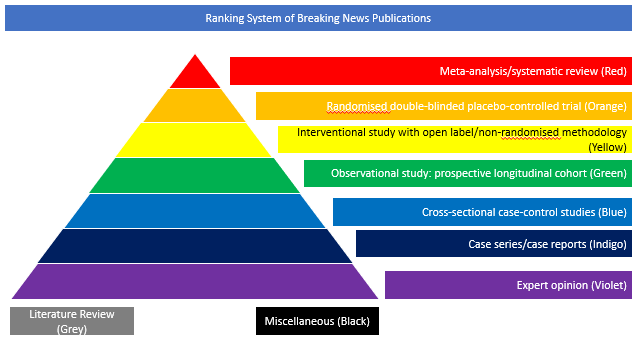Case series/case reports (Indigo)
In this retrospective, observational, non-interventional study conducted in a single-tertiary general hospital, the authors reviewed all COVID-19 cases admitted to the Hospital Santa Marcelina (with a catchment area of 3 million people from Sao Paulo, Brazil) who underwent neurological consultation by physicians of other specialties, from 1 March to 30 June 2020. They observed that 5.24% of patients exhibited neurological complications (63 of 1201 COVID-19 inpatients). Neurological syndromes were classified as cerebrovascular diseases, encephalopathy; meningitis and meningoencephalitis, epilepsy, demyelinating disease, and peripheral syndromes. The outcome was hospital discharge or death. 63 inpatients with a median age of 60 years were evaluated; there was no gender prevalence [32 males (50.8%; mean age 59.8 ± 15.7 years) and 31 females (54.9 ± 15.9 years)]. Seventeen patients (27%) had known previous neurological diseases, but the majority (73%) had new-onset neurological events during the SARS-CoV-2 infection period, including those with pre-existing neurological disorders. The most frequent complication was a stroke in 30 patients (25 ischaemic and 5 haemorrhagic) (47.6%) with a median age of 62 years (non-stroke patients were a median of 49 years of age). These patients were significantly older (P = 0.022) with no gender predominance. Furthermore, encephalopathy was the second most frequent complication, present in 17 patients (27%) with a median age of 51 years (minimum–maximum: 27–86 years). Sixteen of 17 patients had EEG records presenting predominant theta activity (n = 7); diffuse attenuation (n = 5); predominant delta activity (n = 1); slow posterior dominant rhythm (n = 1); and normal activity (n = 1). None of them had focal lesions on cerebral CT scan.








